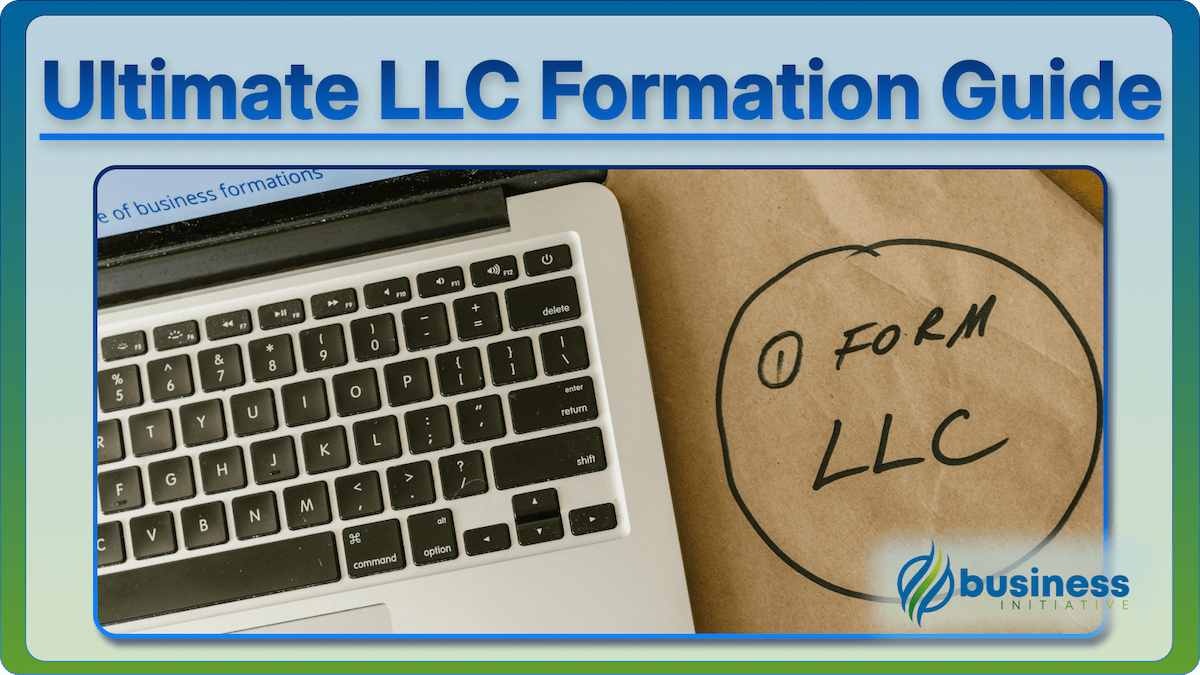You need to know if BOI applies.
You want a quick answer.
You need a simple quiz.
You need to check eligibility.
Eligibility quiz. Yes/no questions. Quick check. Your answer.
This guide shows you how.
BOI eligibility. Simple quiz. Quick assessment. Your compliance.
Read this. Take the quiz. Get your answer.
 Key Takeaways
Key Takeaways
- Most LLCs and corporations must file—if you formed an LLC or corporation in the US, you likely need to file BOI
- Exemptions are narrow—only specific entity types like publicly traded companies, banks, and certain tax-exempt organizations are exempt
- Formation date matters—entities formed before 2024 have until January 1, 2025, while new entities have 90 days from formation
- Foreign-qualified entities must file—if you registered to do business in another state, you still need to file BOI
- When in doubt, file—if you're uncertain about eligibility, filing is safer than risking penalties for non-compliance
 Table of Contents
Table of Contents

Why Quiz Matters
Quiz provides quick answers.
What happens without quiz:
- Eligibility is unclear
- Time is wasted
- Compliance fails
- Penalties accumulate
What happens with quiz:
- Eligibility is clear
- Time is saved
- Compliance is maintained
- Penalties are avoided
The reality: Quiz enables quick assessment.
Question 1: Entity Type
Is your business an LLC or corporation?
Yes
If yes:
- You likely need to file BOI
- Most LLCs and corporations must file
- Continue to Question 2
Why it matters: Entity type determines requirements.
No
If no:
- You may not need to file
- Sole proprietorships and partnerships typically don’t file
- Check other entity types
Why it matters: Entity type affects eligibility.
Pro tip: Know your entity type. LLC, corporation, other. See our BOI guide for entity requirements.

Question 2: Formation Date
When was your entity formed?
Formed Before 2024
If formed before 2024:
- You have until January 1, 2025 to file
- One-time filing required
- Continue to Question 3
Why it matters: Formation date affects deadline.
Formed in 2024 or Later
If formed in 2024 or later:
- You have 90 days from formation to file
- File promptly after formation
- Continue to Question 3
Why it matters: New entities have shorter deadlines.
Pro tip: Know your formation date. Before 2024, 2024 or later. See our BOI timeline guide for deadlines.
Question 3: Exemptions
Are you exempt from BOI filing?
Publicly Traded Company
If publicly traded:
- You are exempt
- No BOI filing required
- Quiz complete
Why it matters: Public companies are exempt.
Financial Institution
If bank, credit union, or broker-dealer:
- You are exempt
- No BOI filing required
- Quiz complete
Why it matters: Financial institutions are exempt.
Tax-Exempt Organization
If 501(c) or other tax-exempt:
- You are exempt
- No BOI filing required
- Quiz complete
Why it matters: Tax-exempt organizations are exempt.
Not Exempt
If not exempt:
- You likely need to file
- Continue to Question 4
Why it matters: Most businesses are not exempt.
Pro tip: Check exemptions. Public companies, financial institutions, tax-exempt organizations. See our BOI risk assessment guide for exemption details.

Question 4: Ownership
Do you have beneficial owners?
What Are Beneficial Owners?
Beneficial owners are:
- Individuals who own 25% or more of the company
- Individuals who exercise substantial control
- Founders, owners, managers, officers
Why it matters: Beneficial owners must be reported.
Yes, I Have Beneficial Owners
If yes:
- You need to file BOI
- Report all beneficial owners
- Continue to Question 5
Why it matters: Beneficial owners trigger filing.
No Beneficial Owners
If no:
- You may not need to file
- Check with professional guidance
- Verify ownership structure
Why it matters: No beneficial owners may mean no filing.
Pro tip: Identify beneficial owners. 25% ownership, substantial control. See our BOI guide for beneficial owner definitions.
Question 5: Status
What is your entity’s current status?
Active Entity
If active:
- You need to file BOI
- File by your deadline
- Quiz complete
Why it matters: Active entities must file.
Inactive Entity
If inactive but not dissolved:
- You may still need to file
- Check with professional guidance
- Verify status requirements
Why it matters: Inactive entities may still need to file.
Dissolved Entity
If dissolved:
- You may not need to file
- Check with professional guidance
- Verify dissolution date
Why it matters: Dissolved entities may not need to file.
Pro tip: Know your status. Active, inactive, dissolved. See our BOI risk assessment guide for status requirements.
Quiz Results
Based on your answers:
You Need to File BOI
If you answered:
- Yes to entity type (LLC or corporation)
- Not exempt
- Have beneficial owners
- Entity is active
Then:
- You must file BOI
- File by your deadline
- Gather required information
- Complete filing promptly
Why it matters: Filing is required for compliance.
You May Not Need to File
If you answered:
- No to entity type (not LLC or corporation)
- Exempt from filing
- No beneficial owners
- Entity is dissolved
Then:
- You may not need to file
- Verify with professional guidance
- Document your determination
- Monitor for changes
Why it matters: Verification prevents unnecessary filing.
You Need Professional Guidance
If you answered:
- Uncertain about any question
- Complex ownership structure
- Unusual entity type
- Borderline exemption status
Then:
- Seek professional guidance
- Consult with attorney
- Get compliance expert advice
- Document your decision
Why it matters: Professional guidance ensures accuracy.
Pro tip: Review results. Need to file, may not need to file, need professional guidance. See our legal checklist guide for attorney questions.

Your Next Steps
Take the quiz. Get your answer. Take action.
This Week:
- Complete this quiz
- Review your answers
- Determine your eligibility
- Gather required information if filing
This Month:
- File BOI if required
- Seek professional guidance if uncertain
- Document your determination
- Set up compliance tracking
Going Forward:
- Monitor for changes
- Update information when required
- Maintain compliance
- Review eligibility periodically
Need help? Check out our BOI filing guide for filing requirements, our 2024 BOI rule guide for rule changes, our BOI risk assessment guide for eligibility determination, and our registered agent guide for business address setup.
Stay informed about business strategies and tools by following us on X (Twitter) and signing up for The Initiative Newsletter.
FAQs - Frequently Asked Questions About BOI Eligibility and Filing

Do I have to file BOI?
Most US LLCs and corporations must file Beneficial Ownership Information (BOI) with FinCEN. Exceptions include certain large, regulated, or inactive entities. If you formed an LLC or corporation, assume you must file unless you've confirmed an exemption.
Learn More...
Sole proprietorships and general partnerships that are not registered as LLCs or corps generally don't file.
Use the eligibility quiz in this guide or FinCEN's resources to check.
When in doubt, file or get professional advice; penalties for non-compliance are severe.
What is the BOI eligibility quiz?
A simple yes/no checklist to see if your company is required to file BOI. It covers entity type, size, activity, and exemptions. Answer the questions to get a quick read on whether you're likely required to file.
Learn More...
The quiz is a starting point; it doesn't replace official FinCEN guidance or legal advice.
If the quiz says you likely must file, go to FinCEN's BOI portal and complete the report.
For complex structures (e.g., multiple entities, trusts), consider professional help.
What happens if I don't file BOI when required?
Civil penalties can be up to $500 per day; criminal penalties can include fines up to $10,000 and up to 2 years in prison. FinCEN is enforcing; non-compliance is high risk. File as soon as possible if you're late.
Learn More...
Filing late is better than not filing; get into compliance and correct errors through FinCEN.
See our BOI 101 guide for who must file and how to avoid penalties.
Set a reminder for updates when beneficial ownership or company info changes.
Where do I file BOI?
File online at FinCEN's BOI portal. The filing is free. Have your company and beneficial owner information ready. Most filers complete it in 15–30 minutes.
Learn More...
Gather formation documents and owner details before you start.
Beware of third parties charging high fees for simple filings; FinCEN doesn't charge.
After filing, update when there are changes to beneficial ownership or company details.
Who counts as a beneficial owner for BOI?
Anyone who owns 25% or more of the company or exercises substantial control (e.g., senior officers, decision-makers). You must report each beneficial owner's name, address, and ID. Use FinCEN's definitions and our BOI 101 guide for details.
Learn More...
Substantial control can include directing major decisions even without 25% ownership.
List all individuals who meet the definition; missing someone can lead to penalties.
Updates are required when beneficial owners change.
Sources & Additional Information
This guide provides general information about BOI eligibility and filing requirements. Your specific situation may require different considerations.
For BOI filing, see our BOI Filing Guide.
For 2024 BOI rule, see our 2024 BOI Rule Guide.
For BOI risk assessment, see our BOI Risk Assessment Guide.
For registered agent services, see our Registered Agent Guide.
Consult with professionals for advice specific to your situation.


